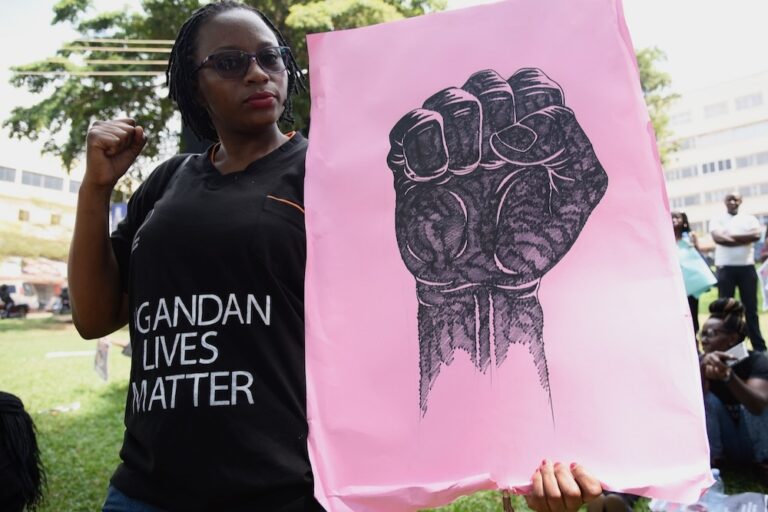The number of journalists summoned and charged in the courts has been increasing, including for crimes that have been ruled unconstitutional, such as publication of false news and sedition.
(ARTICLE 19/IFEX) – ARTICLE19 welcomes the acquittal of journalist Richard Otim and 12 others on charges of treason and concealment of treason by Kampala High Court Judge, David Wangutusi. The 13 were set free on Wednesday 30th May 2012 after the judge ruled that the prosecution had not presented enough evidence to warrant Richard Otim, a Pader-based journalist in northern Uganda, and his 12 co-accused to go to trial for the treason charges leveled against them.
“We laud the judiciary for standing up for the rule of law and respect for human rights in Uganda. The decision by the court is a step in the right direction, but the government must stop using tramped up charges to intimidate critical journalists and citizens, including by incarcerating them,” said Henry Maina, Director of ARTICLE 19 Eastern Africa.
The prosecution had alleged that the suspects committed the offence between 2006 and May 2009 in eight districts of Kampala, Masindi, Gulu, Pader, Kitgum, Nebbi, Apac and Amuru. They are alleged to have formed a rebel group called the Popular Patriotic Front (PPF) and recruited people to fight and overthrow President Yoweri Museveni’s government.
Further allegations were that they mobilized logistical support for the rebellion by obtaining satellite phones, Global Positioning System (GPS) machines, solar panels, black polythene sheets, gumboots, laptops, walkie talkies and firearms.
ARTICLE 19 calls upon the government to stop using tramped up charges against its people, and speed up all its investigations, because justice delayed is justice denied. The government of Uganda is a signatory to many of the international conventions that guarantee peoples’ rights and freedoms and it must honour its obligations without fail.
Journalists in Uganda still face many challenges in the execution of their work. These have included physical attacks, threats and legal actions. The number of journalists summoned and charged in the courts of law has been increasing, including for crimes that have been ruled unconstitutional by the courts of law, such as publication of false news and sedition.
Since 2005, over 39 journalists have been summoned or charged in the courts of law. Their charges range from treason, sedition, promoting sectarianism, criminal libel, criminal trespass, and incitement to violence, forgeries, incitement to commit offence, and support terrorism and economic sabotage.
Another journalist, Augustine Okello is still on remand in Luzira prison facing treason charges. According to ARTICLE 19 partner, Human Rights Network for Journalists in Uganda, attempts to secure bail for Okello, who has been on remand since August 2011, have been frustrated by the judicial processes.
“Many journalists are being tormented by and through the law; they are summoned and charged with all sorts of crimes. This has a chilling effect on how they perform their duties and it is one of the approaches used by the government to curtail freedom of expression and free media,” Maina added.


